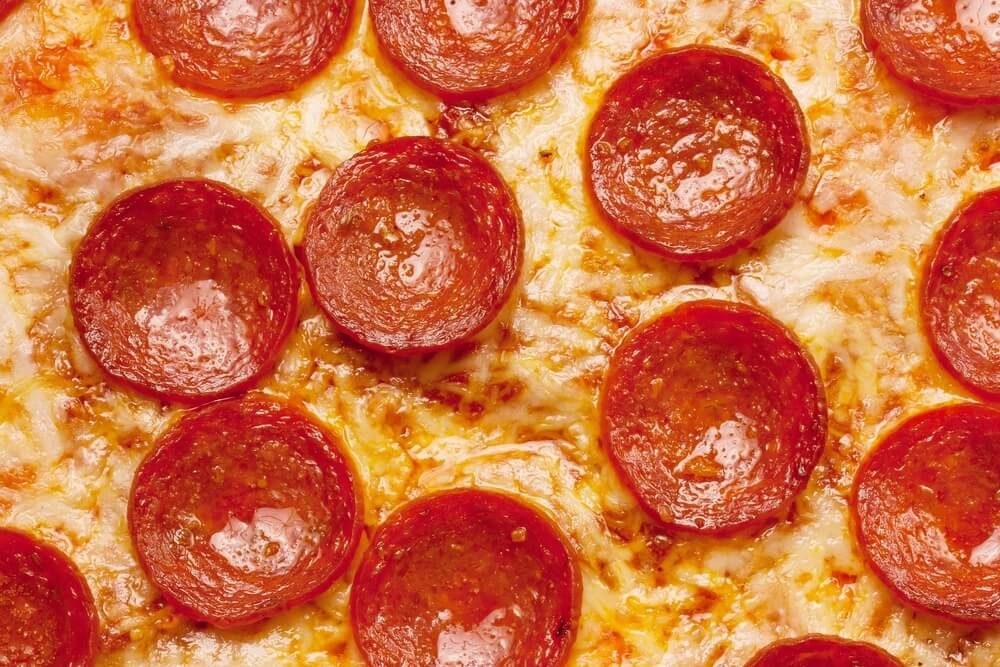- লিঙ্ক পান
- X
- ইমেল
- অন্যান্য অ্যাপ
HEALTHY EATING
9 Signs Your Overeating Is Actually a Food Addiction
Does food rule your life? Look for these clues you might have a problem.
What exactly is food addiction?
 severija/Shutterstock
severija/Shutterstock
Everyone eats emotionally. We’ve celebrated a little league homerun with ice cream or found comfort in a cup of tea with a cookie. But for some, comfort eating has spiraled into something more: a food addiction. The idea is that food can mimic other substance abuse disorders and it’s a controversial issue; some researchers aren’t positive if one can truly be addicted to a candy bar. Other experts like David Wiss, MD, RDN, founder of Nutrition In Recovery, work with clients who identify as food addicts. Here’s what separates food addicts from folks who just occasionally overeat.
You get a “food hangover”
 Sheila Fitzgerald/Shutterstock
Sheila Fitzgerald/Shutterstock
You ate so much high fat and sugary food you actually feel awful the next day. Mood swings, irritability, and bloating make you feel out of it. Get the facts on other ways your body reacts to a binge.
You eat until physically uncomfortable
Nutritional counselors will often tell clients to rate fullness on a scale of 1-10, with 0 being starving and 10 measuring as very full—Thanksgiving dinner style. Food addicts reach 10 often, and sometimes beyond that until physically ill. Here’s how to help reverse a sugar binge.
You have a set of “trigger foods”
Foods you don’t trust yourself around might include items with specific ingredients, such as sugar, salt, wheat, or flour. What starts as an innocent bite of a trigger food, be it a cookie, a pancake, or a piece of pizza, morphs into an all out eating spree where you feel that you have no control. Try this food addiction quiz to help you identify your trigger foods.
You eat one way in public and another way alone
 M. Unal Ozmen/Shutterstock
M. Unal Ozmen/Shutterstock
Shame, regret, and embarrassment prevent a food addict from eating in front of other people. In public, a food addict might eat normal portions, even choose nutritionally sound options—but behind closed doors it’s another story. Gorging typically occurs in isolation. Here are helpful ways to feel less lonely and connect with others.
You pass on social functions
 Horus2017/Shutterstock
Horus2017/Shutterstock
You’re invited to a birthday dinner at a favorite restaurant, but the food is “too tempting,” so you choose not to go. A food addict’s obsession with managing food can weaken social relationships, remove them from hobbies and activities once enjoyed, and even cause a rift among family members. Here are signs you could benefit from therapy.
You food shop for a binge
 Rtstudio/Shutterstock
Rtstudio/Shutterstock
You find yourself heading to the grocery store or specific food establishments, often one after the other, specifically to get the foods you think you should not have. Here’s how grocery stores trick you into buying more.
You can’t stop despite repeated warning about your health
 Rokas Tenys/Shutterstock
Rokas Tenys/Shutterstock
“One of the most important hallmarks of a food addiction is continued use despite negative consequences,” says Wiss. Lethargy, fluctuating weight, digestive issues, obesity, diabetes, anxiety, and a feeling of hopelessness pervade the food addict, but it’s still challenging to stop.
You have obsessive thoughts about a particular food
 tlindsayg/Shutterstock
tlindsayg/Shutterstock
A food addict might take only a taste of ice cream one night after dinner. The difference is what is happening in your mind. “The food addict might not finish off the tub, but is thinking about it for the next 24 hours and cued the next night to do it again,” says Wiss. Here’s how cognitive behavioral therapy might help.
Food helps you “zone out”
 Busara/Shutterstock
Busara/Shutterstock
“You reach to food to cope,” says Wiss. A mistake at work, spat with your spouse, or stress sets you off and food is a means to escape. Try these surprising tricks to stop mindless overeating.
Sign Up for Our Newsle
- লিঙ্ক পান
- X
- ইমেল
- অন্যান্য অ্যাপ


মন্তব্যসমূহ
একটি মন্তব্য পোস্ট করুন